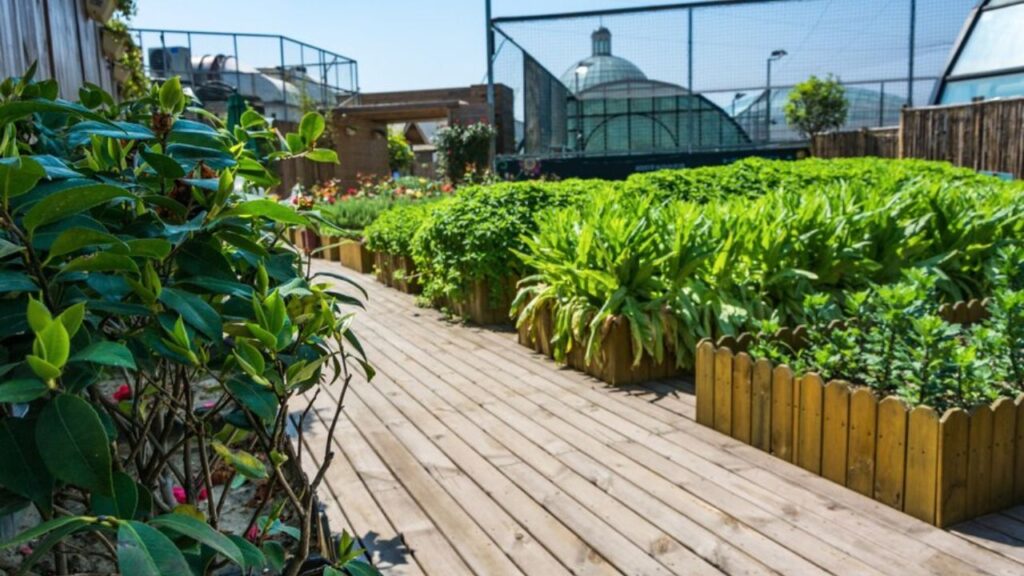Urban farming emerges as an innovative and sustainable remedy for tackling food security and production challenges in urban areas. As the global population burgeons, urbanization spreads, and climate change looms large, the imperative to cultivate fresh, nutritious food in close proximity to urban dwellers intensifies.
Urban farming presents a tapestry of benefits for local communities, weaving together environmental, economic, and social advantages. It serves as a remedy for high transportation costs, a shield against runoff during intense rainfall, and a breath of fresh air, quite literally, enhancing urban air quality.
Urban farming methods include:
- Food-producing gardens in home, school, rooftop
- Bee, poultry, aquaculture, and animal keeping
- Indoor and rooftop farming
- Innovative food-production methods, such as vertical farming, hydroponics, aquaponics
One of the key advantages of urban farming lies in its capacity to augment the volume of locally cultivated food. By nurturing crops within city limits, urban farmers curtail food miles, thereby mitigating the carbon footprint linked with transportation. Moreover, urban farming fosters diversity in the array of foods grown within a city, bolstering food security by lessening the city’s reliance on imported food supplies.

Urban farming plays a pivotal role in enhancing food and nutrition security by increasing the availability of fresh, healthy, and culturally relevant foods. Intensive production techniques for fruits, vegetables, and eggs can ensure a steady supply of fresh local produce for urban dwellers. Participation in community, school, and home gardening, in particular, encourages the consumption of fruits and vegetables among participants. Studies show that youth engaged in gardening programs are not only more physically active but also more inclined to sample new foods that they have grown themselves.
Not only that, Urban agriculture encompasses a variety of composting activities as well. From small-scale piles collecting kitchen, garden, or farm scraps to large-scale, municipality-run operations gathering green waste from urban residents. This practice reduces the organic waste entering landfills and produces nutrient-rich soil, supporting plant growth and reducing the need for fertilizers.
Incorporating urban farming into existing buildings adds value by transforming once underutilized spaces like rooftops, terraces, and ground areas into vibrant greeneries where fresh, healthy food thrives. Besides positioning institutions as innovative and sustainable, urban agriculture initiatives benefit not just the occupants of these buildings but society as a whole. Who wouldn’t relish the sight of a vegetable garden flourishing on the rooftop of the neighboring building?
From small backyard plots to expansive community gardens and commercial operations, urban farming plays a crucial role in ensuring food security, fostering community education, and engaging in outreach efforts.








